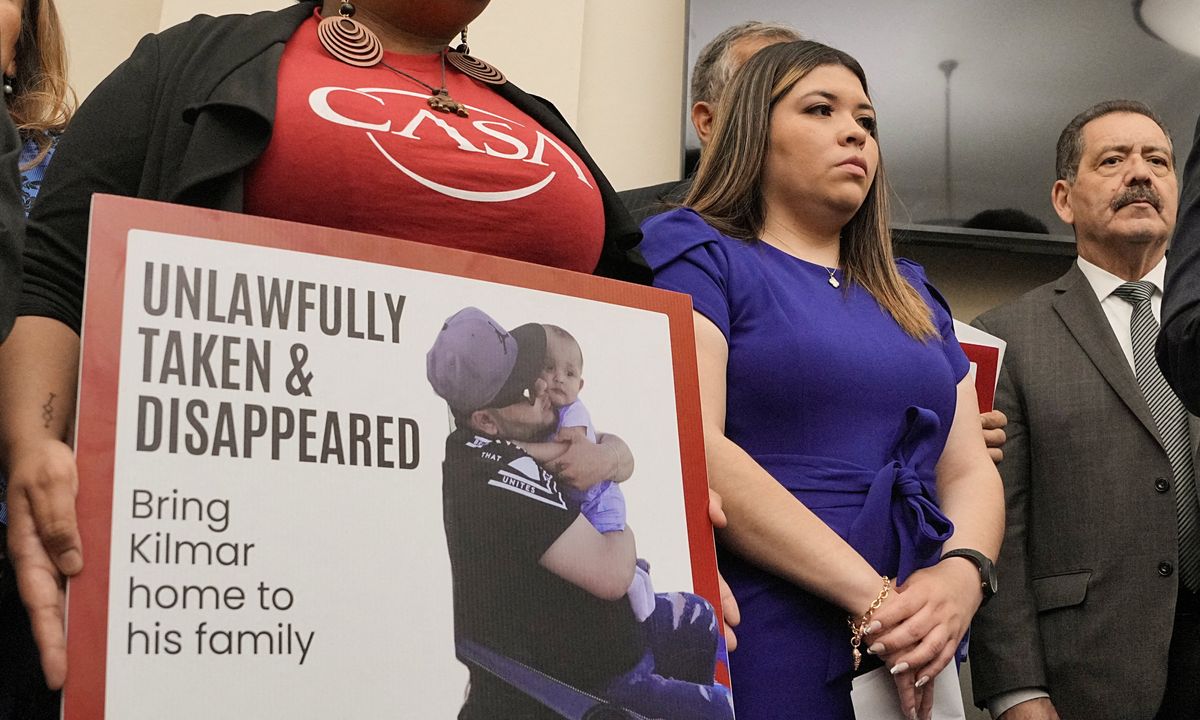
President Donald Trump's Department of Justice on Tuesday opposed the release of a migrant it already acknowledged was wrongly deported to El Salvador, and accused a magistrate judge of committing a “clear error.”
In March, Kilmar Abrego Garcia was mistakenly deported to the country despite a 2019 court order barring his removal due to fear of persecution. He was imprisoned without trial in a notorious maximum security prison and was subsequently criticized as an "administrative error." The Supreme Court delivered a confusing order that the government must "facilitate" his return.
On Tuesday, the Trump administration argued that the magistrate judge erred by rejecting established precedent. The government said she misinterpreted the word “involves” regarding a youth when she wrongly denied a detention hearing.
"In her memorandum opinion, the Magistrate Judge acknowledged and rejected the Second Circuit’s holding in United States v. Watkins, 940 F.3d 152 (2nd Cir. 2019) despite the fact that Watkins has been followed in multiple other districts and deals squarely with an interpretation ofthe word 'involves' (as in 'involves a minor child') used in 18 U.S.C. § 3142(f)(1)(E)," the government said in a new court filing. "TheMagistrate Judge, in declining to follow Watkins, which has been recognized as persuasive authority across the United States, essentially created her own standard for whether a case 'involves' a minor victim in a way that is contrary to what Congress intended, contrary to the mostrelevant and persuasive precedent, and is, respectfully, clear error before this Court."
The Trump administration also slammed the judge for demanding higher reliability from government evidence while accepting unsworn defense materials without similar scrutiny.
"Respectfully, this 'sliding scale' for the Government’s evidence is not the legal standard for acceptance of evidence at a detention hearing," the administration argued. "The Magistrate Judge cited no precedent for this 'sliding scale' proposition; the United States could not find any. The United States would respectfully submit this application is without precedent and is error."
"Should the Defendant be at liberty and successfully flee, the Government’s interest in bringing him to trial will be irreparably injured. The United States cannot try a fugitive," the government concluded.




